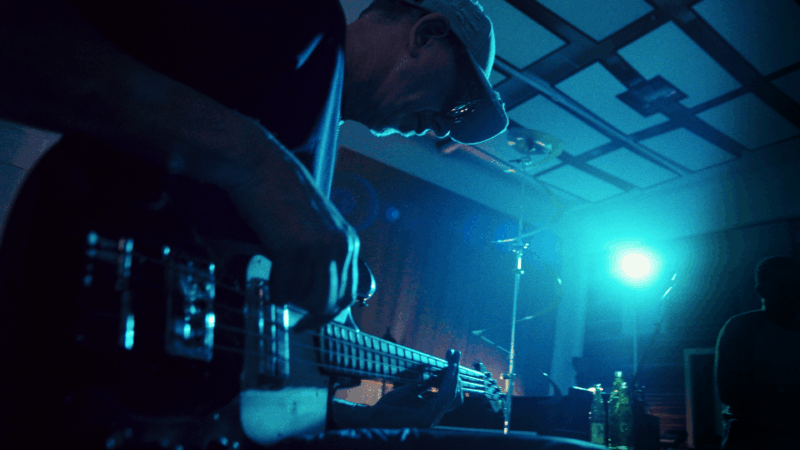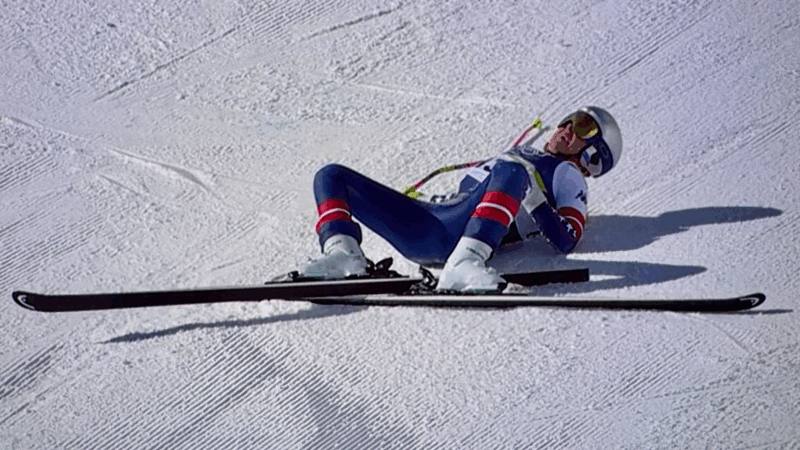‘That Wasn’t A Dream’: Palladino, Mills team up for another album of instrumental craftwork
Bassist Pino Palladino and producer Blake Mills have spent much of their careers rooted in radio-friendly popular styles — working with big names in rock, pop and R&B. But when they play together, their music challenges those categories.
This week, they released their second set of genre-defying tracks together, That Wasn’t A Dream.
Palladino’s resume is nothing short of remarkable. The 67-year-old Welsh bass player has left an indelible mark on popular music over the past four decades, recording with Don Henley, Elton John, Eric Clapton, Aldele and Erykah Badu. He was a part of the John Mayer Trio and had stints touring with D’Angelo, The Who and Nine Inch Nails.
“I’m known for playing on all sorts of different records and styles of music.” Palladino said. “I think when me and Blake get together, it turns into something unique — which is a word that’s probably overused to describe things. But I think I’d like to stick with that word for this.”
Nearly 30 years Palladino’s junior, Mills’ star has been rising since getting his start as a guitarist and vocalist with the Southern California rock group Simon Dawes (now known as Dawes). Along with a series of acclaimed solo records, he’s also worked as a producer for artists such as Fiona Apple, Conor Oberst and Alabama Shakes.
Forging a musical partnership
The duo quickly formed a musical kinship in 2016, when Mills brought Palladino and drummer Chris Dave into the studio for a session with John Legend. Palladino invited Mills to spend a day working on some of his songs in progress.
“That day turned into two years of working on his music,” said Mills. The collaboration led to the duo’s 2021 album, Notes With Attachments.
While Palladino is well known in many circles of popular music, he scoffs at the idea of trying to categorize his work with Mills.
“I don’t know where you would put it genre-wise and I don’t particularly want to,” he explained.
Their compositions blur lines between structure and improvisation and also the hierarchy of a song. “Taka” is driven by Palladino’s swirling, yet hyper-focused bassline.
“I came up with that bassline and that melodic idea pretty much vibing on my own,” Palladino said of the track. “I love African music — West African music specifically. And that was the inspiration from listening to a lot of that music and kind of internalizing it.”
The collaborative process
The creative process is truly collaborative, both men say — one of them will introduce a section of a song in progress and then ask the other for ideas.
Palladino points to “Contour,” the opening track from their new album, as an example. He initially wrote the first part of the song on a Spanish, nylon-string guitar.
“I didn’t know where to go next on it to complete the piece,” Palladino said. “Blake, he had something immediately — like a chord change and a development of the melody.”
When working out parts and song ideas, the duo tends to work without other musicians. Mills notes that the absence of a drummer isn’t problematic when he’s with Palladino.
“There’s still such a sense of rhythm,” Mills said. “It feels like there’s an imaginary ensemble playing with us, and I just kind of lose myself and forget that I’m just playing with one other person and go into this trance of rhythm.”
Commissioning a new instrument in Mills’ sonic ‘vocabulary’
While making the album, Mills was looking for a way to sustain notes on a guitar. He’d used a device called an EBow, but was frustrated by its limitations. Eventually, he discovered the work of guitar maker Duncan Price, who was experimenting with creating unusual six-stringed instruments with no frets.
The result is what Mills has dubbed the “fretless baritone sustainer guitar.”
“Since I’ve had it, I’ve used it on everything,” Mills said. “On every record I’ve produced, I’ve ended up picking it up and using it in some way.”
While Mills says the instrument’s sound is now part of his musical “vernacular or vocabulary,” he isn’t exactly committed to the wordy name he’s given it.
“Until we come up with something that will fit on a lapel pin, I think we’re trying to keep it still in a prototype phase.”
Transcript:
SCOTT SIMON, HOST:
Bass player Pino Palladino has left an indelible mark on pop music over the past four decades, recording with artists from Elton John and Eric Clapton to Adele and D’Angelo. Blake Mills is a multi-instrumentalist and one of the most sought after producers in the music business.
(SOUNDBITE OF PINO PALLADINO AND BLAKE MILLS’ “SOMNAMBULISTA”)
SIMON: They have teamed up for their second album, “That Wasn’t A Dream.”
(SOUNDBITE OF PINO PALLADINO AND BLAKE MILLS’ “SOMNAMBULISTA”)
SIMON: Pino Palladino and Blake Mills join us now. Gentlemen, thanks so much for being with us.
PINO PALLADINO: It’s a pleasure.
BLAKE MILLS: Pleasure.
SIMON: Pino Palladino, we think of you as rock, pop, R&B. This album isn’t exactly any of those.
PALLADINO: Yeah. I’m known for playing on all sorts of different records and styles of music. When me and Blake get together, it turns into something unique, which is a word that’s probably overused to describe things. But I’d like to stick with that word.
(SOUNDBITE OF PINO PALLADINO AND BLAKE MILLS’ “SOMNAMBULISTA”)
PALLADINO: I don’t know where you would put it genre-wise, and I don’t particularly want to.
SIMON: That makes sense. How did you guys meet and become collaborators? I don’t think I know that story.
MILLS: Well, I was producing a John Legend record around 2016, and one of the fundamental concepts on the album was to use a rhythm section – a live rhythm section – for every track on the record. And there was never any other option in my mind than Pino Palladino and Chris Dave. So we reached out to see if they were available, and they were and they – that was the first time Pino and I met. Somewhere on that session, he mentioned that he was working on some solo material, and if I had a day to come down and play on something, how much fun that would be. And that day just turned into two years of working on his music.
(SOUNDBITE OF PINO PALLADINO AND BLAKE MILLS’ “I LAUGH IN THE MOUTH OF THE LION”)
SIMON: How do you two work together? What’s the artistic process?
PALLADINO: Yeah. I mean, in terms of composition, I mean, it’ll usually be either me or Blake coming in with an idea that may not be finished, and we’ll sort of – for instance, if I take an example like the first tune on the album, “Contour”…
(SOUNDBITE OF PINO PALLADINO AND BLAKE MILLS’ “CONTOUR”)
PALLADINO: …I had the first part of that song that I’d written on an acoustic guitar – my Spanish – a nylon-string guitar. And I played what I had to Blake. And I’d kind of reached a wall in terms of I didn’t know where to go next on it to complete the piece. And Blake, he had something immediately, like a chord change and development of the melody. It’s very experimental when we’re actually recording and trying different instruments and different sounds.
(SOUNDBITE OF PINO PALLADINO AND BLAKE MILLS’ “CONTOUR”)
MILLS: When we are working out a song or a part or something like that, and it’s just the two of us and we’re playing without a drummer, there’s still such a sense of rhythm – and more specifically, a type of pocket with the rhythm that it feels like there’s an imaginary ensemble playing with us. And I just kind of lose myself and forget that it – I’m just playing with one other person and go into this trance of rhythm.
(SOUNDBITE OF PINO PALLADINO AND BLAKE MILLS’ “TAKA”)
SIMON: Pino Palladino, there are some moments on this album that feel like you’ve worked it out in advance. Others, they sound like you’re exploring. Let’s, for example, listen to “Taka.”
(SOUNDBITE OF PINO PALLADINO AND BLAKE MILLS’ “TAKA”)
SIMON: What can you tell us about this?
PALLADINO: I came up with that bass line and pretty much that melodic idea just sort of vibing, really, on my own.
(SOUNDBITE OF PINO PALLADINO AND BLAKE MILLS’ “TAKA”)
PALLADINO: I love African music – West African music, specifically. And that was, you know, the inspiration from listening to a lot of that music and kind of internalizing it.
SIMON: There is a new instrument that appears on this album, I gather.
MILLS: There is.
(SOUNDBITE OF PINO PALLADINO AND BLAKE MILLS’ “WHAT IS WRONG WITH YOU?”)
SIMON: Tell us about this instrument ’cause I gather you commissioned a prototype.
MILLS: Yeah. It was – for a little while, I was working with a device called an EBow, and that’s been around for, I think, like, 40 years or something. But it’s basically just – for a guitarist, you hold it in place of a pick and it resonates the string, kind of like a bow would on a violin or a cello or bass or something. So you have infinite sustain, and you can swell into a note like a vocalist or a wind instrument. And so I was using that, but there’s limitations to it. It’s not very easy to play on more than one string. And as I ran up against some of those limitations, I chanced across a fellow on Instagram who was building these guitars that basically just takes that concept and spreads it across the whole six strings of a guitar. So, I mean, it’s not necessarily new technology, but the implementation of it on a guitar that doesn’t have frets and that is in a specific tuning and has certain kinds of pickups, there were things that I knew that I wanted based on some instruments that I had at the studio.
(SOUNDBITE OF PINO PALLADINO AND BLAKE MILLS’ “WHAT IS WRONG WITH YOU?”)
MILLS: His name’s Duncan Price, and he put this guitar together and sent it over to me. Until I can come up with a better name for it, it’s just – we’ve been referring to it as the – something like fretless baritone sustainer guitar. I don’t know, it’s a little clunky. We’re working on it.
SIMON: Oh, that’ll never sell.
MILLS: No, no. It won’t make – until we can come up with something that’ll fit on a lapel pin, I think we’re trying to keep it still in a prototype phase.
(SOUNDBITE OF PINO PALLADINO AND BLAKE MILLS’ “WHAT IS WRONG WITH YOU?”)
SIMON: Pino Palladino and Blake Mills. Their new album, the title is “That Wasn’t A Dream,” and it’s out now. Thank you both very much for being with us.
PALLADINO: Thank you, Scott.
MILLS: Thank you, Scott.
(SOUNDBITE OF PINO PALLADINO AND BLAKE MILLS’ “THAT WAS A DREAM”)
Lindsey Vonn says she suffered ‘complex tibia fracture’ in her Olympic downhill crash
The 41-year-old star said her torn ACL was not a factor in her crash. "While yesterday did not end the way I had hoped, and despite the intense physical pain it caused, I have no regrets," she wrote.
Guerilla Toss embrace the ‘weird’ on new album
On You're Weird Now, the band leans into difference with help from producer Stephen Malkmus.
Nancy Guthrie search enters its second week as a purported deadline looms
"This is very valuable to us, and we will pay," Savannah Guthrie said in a new video message, seeking to communicate with people who say they're holding her mother.
Immigration courts fast-track hearings for Somali asylum claims
Their lawyers fear the notices are merely the first step toward the removal without due process of Somali asylum applicants in the country.
Ilia Malinin’s Olympic backflip made history. But he’s not the first to do it
U.S. figure skating phenom Ilia Malinin did a backflip in his Olympic debut, and another the next day. The controversial move was banned from competition for decades until 2024.
‘Dizzy’ author recounts a decade of being marooned by chronic illness
Rachel Weaver worked for the Forest Service in Alaska where she scaled towering trees to study nature. But in 2006, she woke up and felt like she was being spun in a hurricane. Her memoir is Dizzy.






